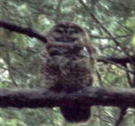Judge’s decision unfairly punishes ranching community
By Sens. Ted Ferrioli, Doug Whitsett, Frank Morse, and Fred Girod
Note: Sen. Ted Ferrioli (R-John Day) can be reached at sen.tedferrioli(at)state.or.us. Sen. Doug Whitsett (R-Klamath Falls) can be reached at sen.dougwhitsett(at)state.or.us. Sen. Frank Morse (R-Albany) can be reached at sen.frankmorse(at)state.or.us. Sen. Fred Girod (R-Stayton) can be reached at sen.fredgirod(at)state.or.us.
The Statesman-Journal, March 18, 2011 [here]
U.S. District Court Judge Ancer Haggerty’s decision — to enjoin seven Grant County ranchers from using their forest service grazing allotments — is truly a case of justice gone blind, because it tries to force federal bureaucrats to follow the law by punishing ranching families who had no control over agency failures that brought on the lawsuit.
Cattle ranching in Oregon is already an iffy proposition because of rising costs of fuel and feed and unnecessarily draconian water standards enforced by the Oregon Department of Environmental Quality and U.S. Environmental Protection Agency. Add to these all the special requirements of the Endangered Species Act and ranchers face the toughest performance standards of any agricultural enterprise.
Does Oregon need its ranchers? You bet! Today, cattle production is one of Oregon’s top income producers and a mainstay of Eastern Oregon rural communities. With the near-collapse of the Eastside timber industry, ranching is the only thing keeping the services and supply sector (mostly small family-owned operations) alive.
Because federal permits are required to authorize grazing in upland areas where snow and rainfall create the headwaters of salmon-bearing streams, a U.S. government document called a Biological Opinion must be prepared to demonstrate that grazing on the allotment will not degrade salmon habitat.
Grazing practices are structured so that cattle are continuously moved to prevent overgrazing and damage to stream banks. Both ranchers and forest service range managers are responsible for monitoring grazing operations. The Biological Opinion describes the protocols, actions and practices that protect endangered species habitat.
Judge Haggerty concludes that the Biological Opinion written by federal bureaucrats is inadequate. He has determined that it will not withstand scientific review and fails to meet the requirements of the Endangered Species Act.
Accordingly, Judge Haggerty has ordered the forest service to prepare a new Biological Opinion. But in our opinion, he has wrongly enjoined the use of grazing allotments until a legally sufficient Biological Opinion is prepared.
In effect, Judge Haggerty is holding the ranching community hostage for the failures of federal bureaucrats, transferring all of the financial and social harm to families that had no control over the agency that so miserably failed to perform its duties under the law to craft an opinion that preserves both cattle grazing and salmon habitat.
While federal bureaucrats suffer no consequences for their poor performance, ranching families face financial ruin. This must not become the model for justice under the Endangered Species Act.
Perhaps it would have been wiser for Judge Haggerty to have ordered the forest service to rewrite the Biological Opinion before June 1, 2011, and to issue temporary “take” permits to the ranchers pending approval of the Biological Opinion.
By doing so, Haggerty would have held the agency accountable for protecting salmon runs without destroying what’s left of rural economies.
Additional Notes:
1. Yesterday Judge Ancer Haggerty modified his ruling to allow 15 of 19 ranchers involved in the case to use their alloments for one more season [here].
2. The lawsuit was brought by the Oregon Natural Desert Association and the Western Watersheds Project. Those eco-litigious sue-sue-sue groups were recently gifted $22 million by the El Paso Corp who are building the Ruby (natural gas) Pipeline. See [here, here, here, here, here]. The “deal” was an extortion payment [here]. The sue-happy eco-monkey-wrencher groups agreed to not tie up the pipeline project in court in return for the huge payoff.
3. Eco-litigious groups also receive huge windfalls in return for suing the government through the “Judgment Fund” and the Equal Access to Justice Act (EAJA) [here, here, here]. $Billions have been funneled to sue-happy monkey-wrencher groups, much of it directly from Federal land management agency budgets.
4. The Oregon Natural Desert Association is also supported by corporations that include Patagonia, Trader Joe’s, and Bank of the Cascades [here]. Their Board, staff, advisors, and “consultants” are exclusively white liberals with no background in ranching or forestry. In fact, along with WWP, ONDA is virulently anti-ranching and anti-forestry. Their roots go back to monkey-wrencher eco-terrorist groups.
5. More damage to streambanks is done by government protected feral horses and donkeys than by cattle [here].
6. The endangered species allegedly at risk is the steelhead, aka rainbow trout (Oncorhynchus mykiss). The species has been introduced for food or sport to at least 45 countries, and every continent except Antarctica [here]. The species is in no way, shape, or form “endangered”. In fact, it is considered (by the USFWS) to be a pest and a competitor to other fish in other watersheds.
